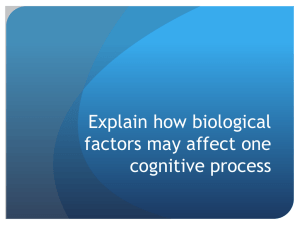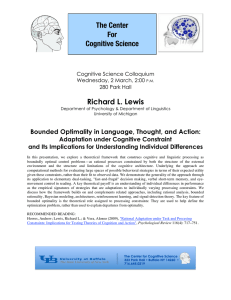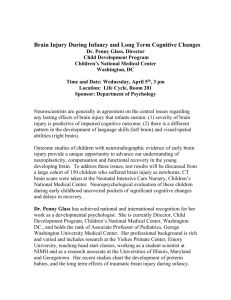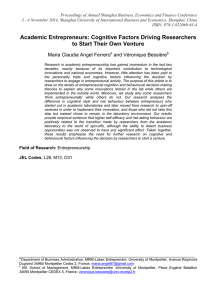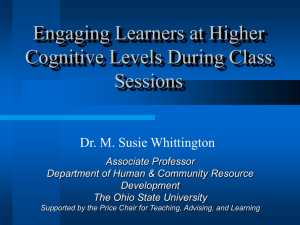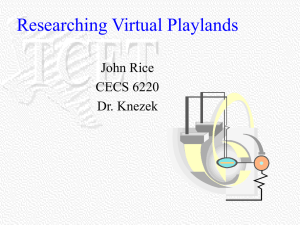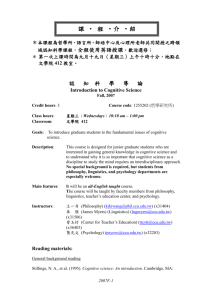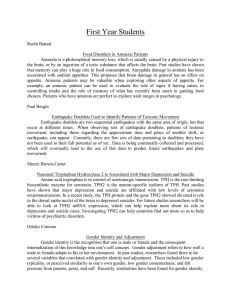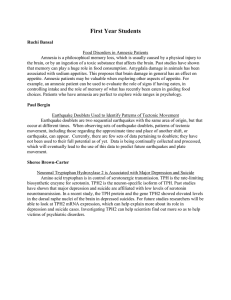The paper begins with a conceptual description of higher
advertisement
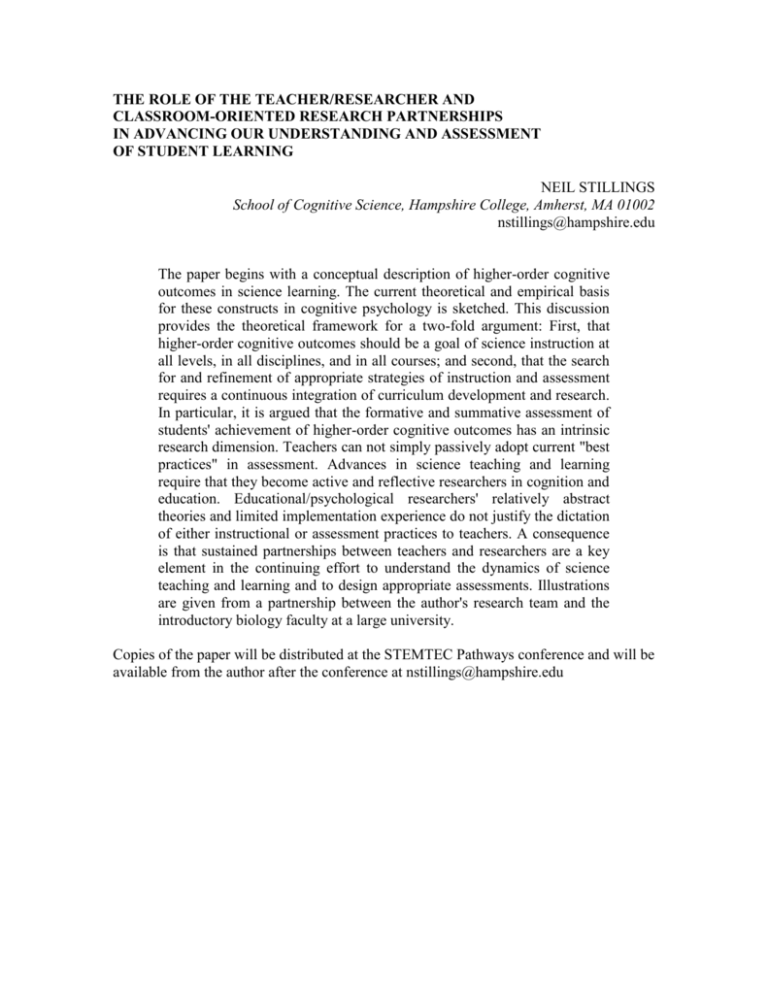
THE ROLE OF THE TEACHER/RESEARCHER AND CLASSROOM-ORIENTED RESEARCH PARTNERSHIPS IN ADVANCING OUR UNDERSTANDING AND ASSESSMENT OF STUDENT LEARNING NEIL STILLINGS School of Cognitive Science, Hampshire College, Amherst, MA 01002 nstillings@hampshire.edu The paper begins with a conceptual description of higher-order cognitive outcomes in science learning. The current theoretical and empirical basis for these constructs in cognitive psychology is sketched. This discussion provides the theoretical framework for a two-fold argument: First, that higher-order cognitive outcomes should be a goal of science instruction at all levels, in all disciplines, and in all courses; and second, that the search for and refinement of appropriate strategies of instruction and assessment requires a continuous integration of curriculum development and research. In particular, it is argued that the formative and summative assessment of students' achievement of higher-order cognitive outcomes has an intrinsic research dimension. Teachers can not simply passively adopt current "best practices" in assessment. Advances in science teaching and learning require that they become active and reflective researchers in cognition and education. Educational/psychological researchers' relatively abstract theories and limited implementation experience do not justify the dictation of either instructional or assessment practices to teachers. A consequence is that sustained partnerships between teachers and researchers are a key element in the continuing effort to understand the dynamics of science teaching and learning and to design appropriate assessments. Illustrations are given from a partnership between the author's research team and the introductory biology faculty at a large university. Copies of the paper will be distributed at the STEMTEC Pathways conference and will be available from the author after the conference at nstillings@hampshire.edu


